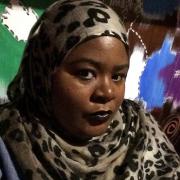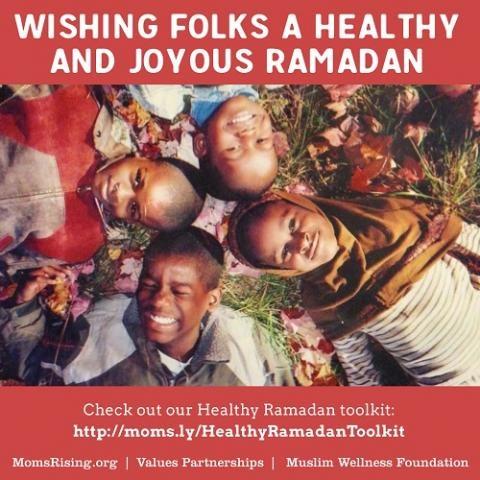I can say, with an overwhelming amount of certainty that every observant Muslim working, living and socializing in spaces not exclusively Muslim centered has engaged in some variation of the “fasting isn’t that bad” talk. I had one a few days before the start of Ramadan. By the time the conversation ended I had assured curious co-workers, noisy neighbors and all the other townspeople that despite my temporary abstentions I would neither waste away nor shrivel up and die. The “fasting isn’t that bad” talk inevitably ends with a glorious recounting of fabulous iftars past and the anticipation of those yet to come. Tales of times spent at masjids overflowing with people in prayer and contemplation. Stories meant to convey at once what compels over a billion people worldwide to such an undertaking, and where we fit in that large number. After all, for most Muslims Ramadan is the most social time of the year.
Despite all this, fasting is a solitary endeavor.
The first Ramadan I spent away from my family seemed so quiet. I’m an introvert, and not at all a morning person, so that first morning when I woke up for suhoor I thought, “huh, this could work.” I had to make my own breakfast, but I didn’t have to have a five minute long conversation about what I was eating. I didn’t get to watch my brother consume half his body weight in syrup covered breakfast foods, but really who would miss that? There was no group water gulping session in those last few minutes of partaking. There was just me sitting cross legged on the floor with my meal. And after the first week had passed in solitude I remember thinking, “huh, so this must be what fasting is really about.” It was the first time I felt really conscious and intentional about fasting. My family didn’t abandon me - I got phone calls every morning and evening. But the social aspects were missing. I ate alone. I went to the masjid alone. I read Quran alone. I celebrated alone.
My solitude didn’t last for very long. Eventually I made friends and formed my own small community. My Ramadans became more social and once again fasting “wasn’t that bad.”
Over the years I’ve had to find a balance between socializing and solitude.
This year, living with family again after a decade long separation, I’m leaning towards solitude. Not just for the silence, but for self-care.
This Ramadan I want to think about myself in relation to other people. Not just for the good I assume I’m doing them, or the good I assume I’m accruing for my own soul. But really how I interact with those around me and what motivates that.
What is it about this month in particular that compels empathy in my community? What drives the social interactions we have with one another? And how do I integrate all of that into something sustainable throughout the year?
The Muslim women involved in the MomsRising Health Ramadan toolkit have started this conversation when it comes to discussing how we as Muslims can address childhood obesity in the Muslim community. The guide starts much needed conversations that we can build upon during the year.
The toolkit can be found at: http://tinyurl.com/p3q5bl3



The views and opinions expressed in this post are those of the author(s) and do not necessarily reflect those of MomsRising.org.
MomsRising.org strongly encourages our readers to post comments in response to blog posts. We value diversity of opinions and perspectives. Our goals for this space are to be educational, thought-provoking, and respectful. So we actively moderate comments and we reserve the right to edit or remove comments that undermine these goals. Thanks!